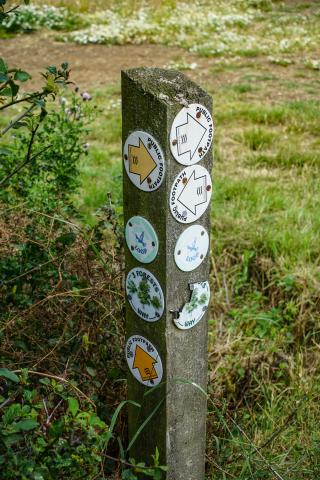
Choosing your GCSEs with a view to a career in law?
There is no need to choose particular GCSE (or equivalent qualifications) subjects if you think you want to go into a legal career but its worth thinking about subjects which will help you develop some of the skills you will need for your future career.
Choosing GCSEs
You don't have to do law at GCSE, A-level, or even at degree level, to progress onto a legal apprenticeship or for a career in law. There are subjects, however, which will help you develop skills in written communication (English language and literature, history), analysis and critical thinking (maths, science subjects) and develop your confidence in public speaking (drama, English literature, modern languages) which will benefit you further along your chosen career path.
If you are interested in studying law at GCSE or A-level, and the option is available to you, it can certainly give you an understanding of whether you will be interested in this area of study or work. The main thing is to ensure that you choose non-mandatory subjects that you enjoy and think you will do well in, as you will need to achieve five GCSEs 9-4, or equivalent, including English, maths and possibly science to progress into legal apprenticeships, A levels (or equivalent) or university.
Try before you buy!
Studying law is challenging, so why not do some free taster sessions to see if you like the subject first? The Open University Open Learn offers free taster sessions in various aspects of the law and we have highlighted some on our Career in Law page for you.
Ask your school to get involved in the Young Citizens' Mock Trials so you can experience what it's really like working as a legal professional in a court case! Mock Trials are available as Magistrates' Court mock trials for 12-14 year olds and as Bar mock trials for 15-18 year olds.
After GCSEs (or equivalent)
After you have completed your GCSEs (or equivalent qualifications), there are a range of options available to you if you are keen to pursue a career in the law that don't all involve going to university.
-
Leave school after GCSEs (or equivalent) and work in a legal (e.g. legal secretary, court usher, trainee conveyancer etc) or non-legal setting, while studying for specific legal qualifications (e.g. CILEX introductory – level 2 - qualifications, Costs Lawyer, Licensed Conveyancer);
-
Leave school after GCSEs (or equivalent) and work in a solicitor’s firm, first developing on the job before applying for a level 3 paralegal or CILEX apprenticeship and studying while you work;
-
Continue on to A levels or equivalents at school, sixth form or Further Education (FE) college for access to other legal career pathways.
Useful resources for the future
Once you are in Year 12, lower sixth or S5 and meet certain eligibility requirements, you might be interested in the Aspiring Professionals programme run by the Social Mobility Foundation to help young people into university and professional life. Find out more about the Aspiring Professionals programme and how to apply.
Whether you are a school or university student, Zero Gravity is a tech platform offering a wealth of support to help you through university applications, job applications and career opportunities. Learn more about how Zero Gravity could help you build your future.
